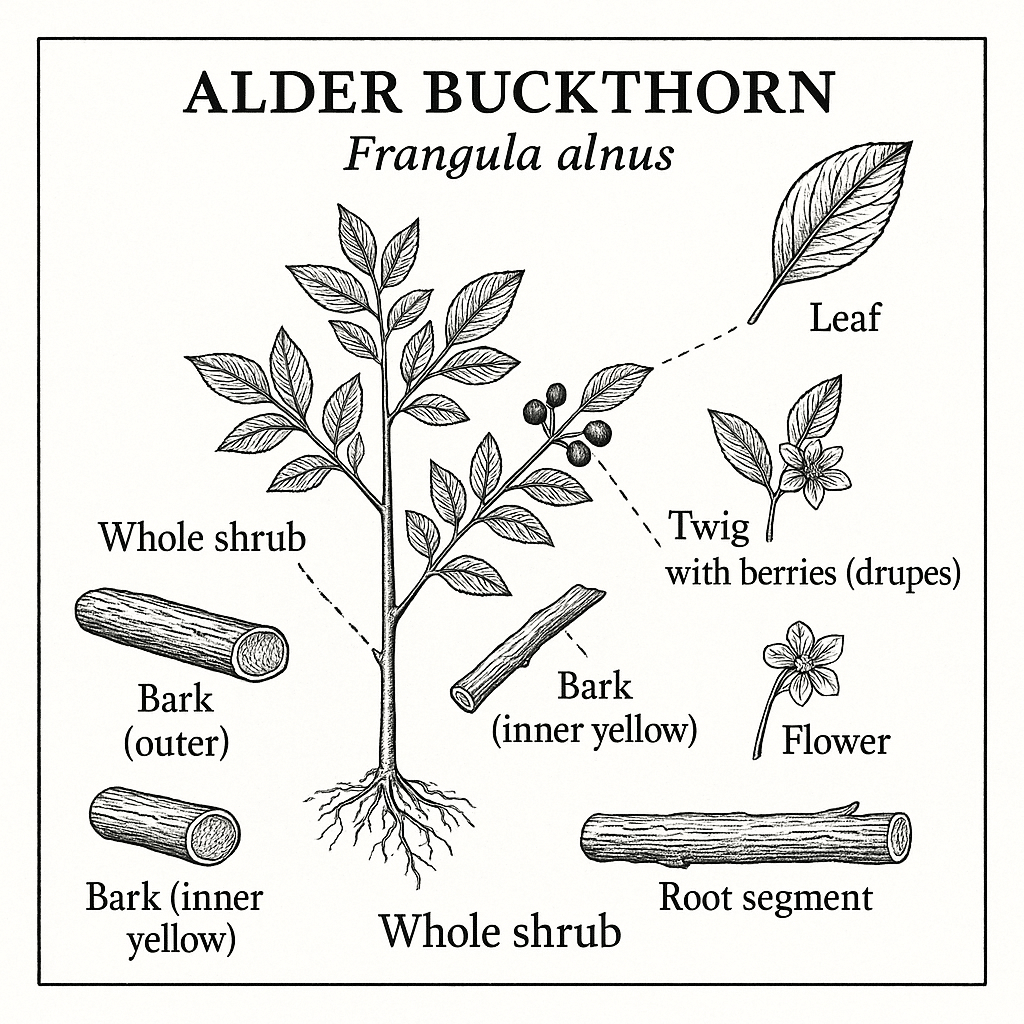Alder buckthorn bark
Frangula alnus (syn. Rhamnus frangula) — Frangulae cortex (dried, aged bark) — Materia Medica

Snapshot
Aged/heat-treated alder buckthorn bark (Frangulae cortex) is a stimulant laxative rich in anthraquinone glycosides (e.g., glucofrangulins → frangulins). Effects typically begin 8–12 hours after dosing. Used short-term for occasional constipation; not for chronic use. Aging (≈1 year) or heat treatment reduces irritating anthrones found in fresh bark.Alder buckthorn bark (Frangula alnus, syn. Rhamnus frangula) is a classic stimulant laxative. Properly aged or heat-treated bark contains anthraquinone glycosides that the gut flora convert to active aglycones, producing a bowel movement in about 8–12 hours. It’s traditionally taken at bedtime for short-term relief of occasional constipation.
Only use aged (≈1 year) or heat-treated bark—fresh bark is irritating and emetic. Because stimulant laxatives can shift electrolytes, alder buckthorn is not for chronic constipation and shouldn’t be combined long-term with medications affected by potassium levels (e.g., certain heart medicines or diuretics). Avoid use during pregnancy, lactation, and in children under 12.
Identification & Harvest
Only use properly aged (≈1 year) or heat-treated bark; fresh bark is emetic/irritating.Preparations
- decoction
- tincture
- powder
- capsule
Safety
Contraindicated in intestinal obstruction, stenosis, acute inflammatory bowel disease, appendicitis, abdominal pain of unknown origin, severe dehydration with electrolyte depletion. Do not use during pregnancy or lactation; not for children <12 years. Limit to short-term use (≤1 week) unless directed by a clinician. Possible cramping/diarrhea; prolonged or excessive use may cause potassium loss—use caution with cardiac glycosides, antiarrhythmics, diuretics, corticosteroids, or licorice. May harmlessly discolor urine.Related Research
No studies yet.
References
- (2012) Community herbal monograph on Frangulae cortex (alder buckthorn bark), HMPC/EMA
- (2012) Assessment report on Frangulae cortex (EMA/HMPC)
- (2002) WHO Monographs on Selected Medicinal Plants: Frangulae cortex
- (2013) Anthraquinone laxatives: pharmacology and safety overview (review, PubMed)
Educational content only; not medical advice.
